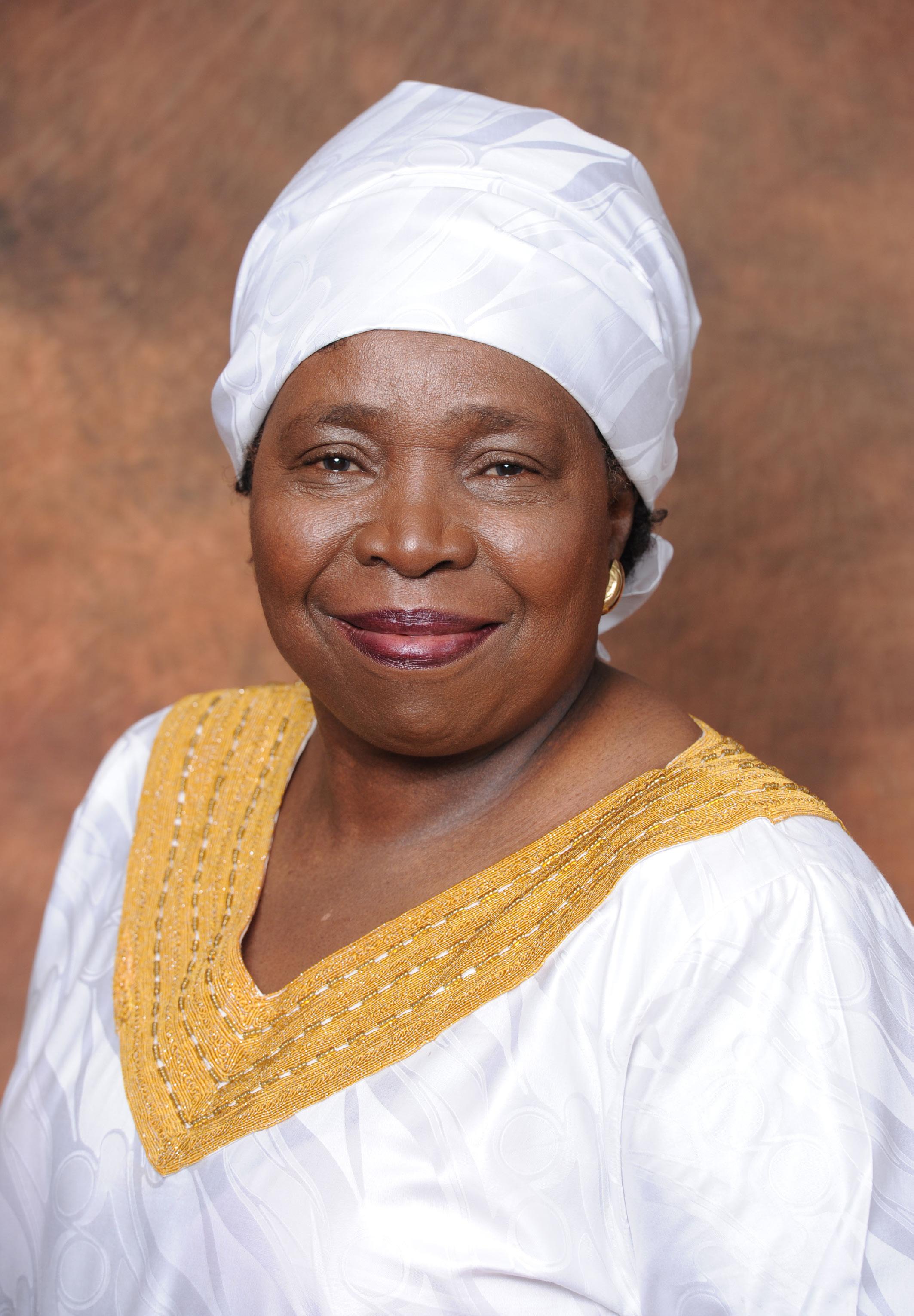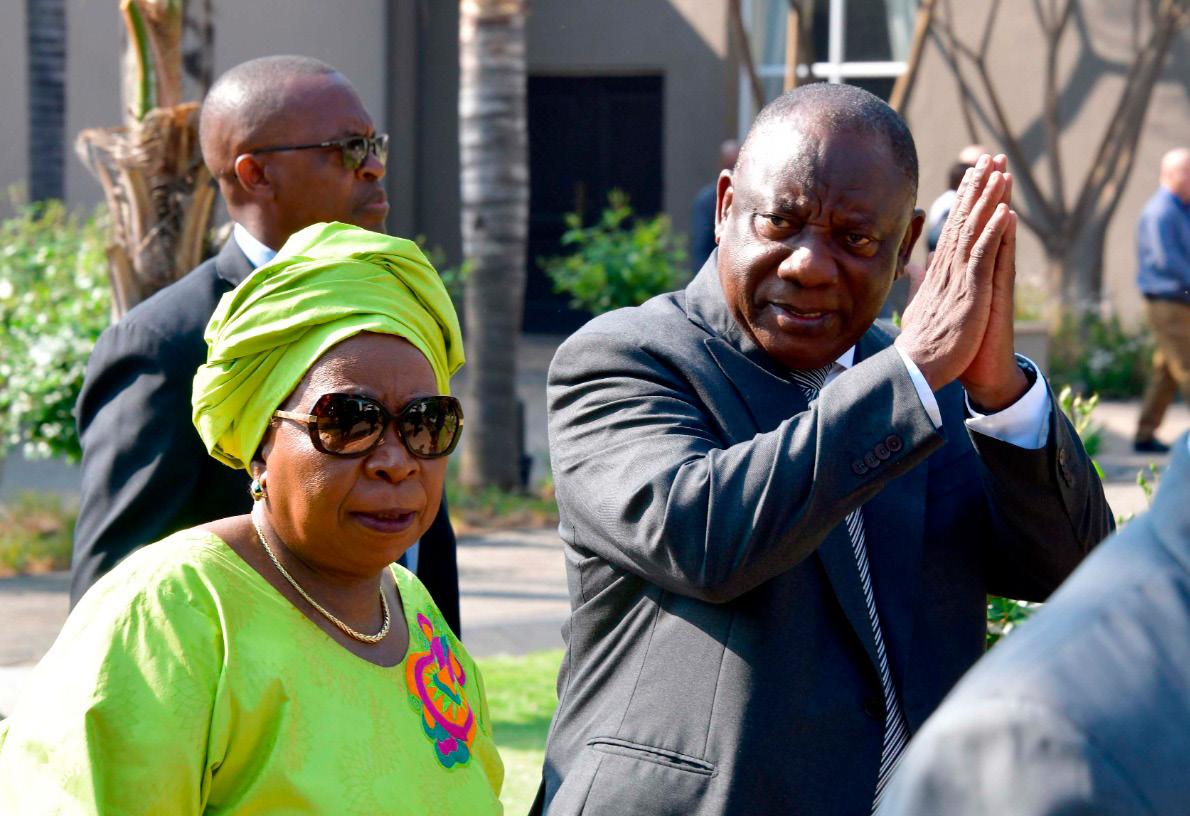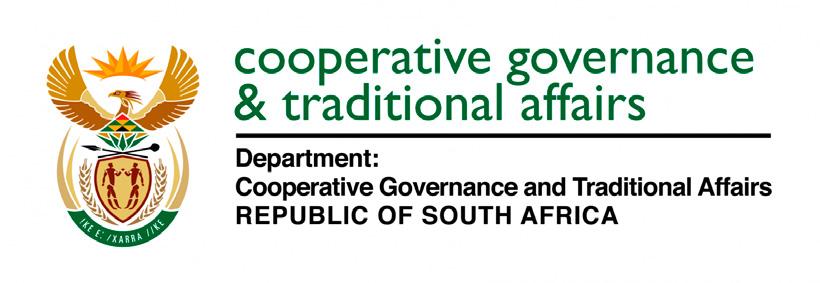
6 minute read
COGTA: Recalibrating Cooperative Governance towards an ideal Municipality
Minister: Dr Nkosazana Dlamini-Zuma
A key area in the delivery of services is the building of strategic partnerships which will form an integral part of achieving a state of ideal municipalities working with business, international communities and other key stakeholders and role players.
Advertisement
The two-day national Local Government Summit was convened by the Minister of Cooperative Governance and Traditional Affairs (CoGTA), Dr Nkosazana Dlamini Zuma, and held in Boksburg, Gauteng, 27- 28 September 2022.
This summit was a reflection of the District Development Model (DDM) in action towards realising the state of an ideal municipality that is underpinned by an ideal Local Government, it was in essence a reinforcement of chapter 3 of the Constitution.
Cabinet Ministers, Deputy Ministers, Premiers, Heads of Missions in SA, Heads of State-Owned Entities, MECs, Mayors, Municipal Managers, Traditional and Khoi-San leaders, Academia, and national and provincial department heads attended the summit in keeping with the principles of cooperative governance.
The two-day gathering presented a platform for the coalescence of solutions to collectively address challenges that face local government and cooperative government by extension.
The first day of the summit saw the Minister of CoGTA, Dr Dlamini Zuma, delivering a keynote address emphasising the need to address three key focus areas comprised of creating a conducive environment for a healthy interface between Governance and Administration in order to facilitate inclusive Local Economic Development and integrated service delivery. The Minister called on all stakeholders in local government to take stock of the progress and challenges experienced in the 21 years of a democratic local government and begin to work towards an ideal municipality.
Ministers, MECs, business and academic representatives stressed the recognition of municipalities as being at the heart of development in our communities. The Auditor General, Ms Tsakani Maluleke underscored governance and the prudent use of public funds. The Statistician General, Dr Risenga Maluleka highlighted planning as a key to successful delivery of services in municipalities.
Building on the addresses of the first day, panel discussions and breakaway sessions were able to lift-up critical areas for concerted intervention efforts to strengthen municipal governance, improve service delivery and audit outcomes, as well as befitting conditions for a community centred development.
As part of the discussion to chart the way forward towards achieving effective and efficient functioning municipalities as espoused by the National Development Plan, delegates agreed that the success of local government is the success of the whole of government and the country at large. Delegates supported the institutionalisation of the DDM as an all of society and all of government approach to build resilient, sustainable, cohesive, nonsexist, non-racial and climate-smart communities.
The institutionalization of the DDM is taking the country towards integrated planning and doing away with silos. Business and Academic representatives also acknowledged the DDM as a viable method to address the gaps and challenges of service delivery. Delegates committed to full participation in the development of the district “One Plans” as a longterm instrument for development by all districts and metropolitan municipalities.
Delivering his remarks on the second day of the summit President Ramaphosa called for strengthening of leadership, administration, governance, and financial management. The summit appreciated that many municipalities have been unable to increase economic investment and job creation. This challenge can be attributed to poor or lack of local economic development (LED) plans. To this effect, the delegates agreed that LED units in municipalities should be strengthened. There was an agreement that municipalities should be strengthened and capacitated to be engines for the national economic development.

A key element related to local economic development that was raised is skills. The Minister of COGTA urged for skills revolution which will support the needs of municipalities and the growing economy.
The rural master plan was raised as an important milestone in the quest to deliver services and develop communities. This important initiative is led by traditional leaders and have urged for government and other stakeholders support to implement this plan. The 21-year review of Local Government will provide the necessary insight of what has worked, what was achieved and the way forward for this sector. The review should assist to set us on a path to having municipalities that work for communities.
The issue of disasters was also raised as requiring attention. Communities have to be involved in the discussions about disaster preparedness and disaster risk reduction.
Highlights from the panel discussions:
The panel and commissions looked at Governance and Administration and reflected on challenges facing municipalities. The discussions touched on governance structures in municipalities; hung’ councils and their impact on service delivery, the need to have clear delineation between political and administrative leadership; the role of Traditional Leaders in ensuring good governance in municipalities; the functionality of ward committees and innovative ways to expand public participation; poor oversight and accountability and corruption
The panel on service delivery acknowledged challenges in municipalities mainly relating to inadequate infrastructure that allow the for the delivery of services; Inadequate Maintenance; Infrastructure Lifecycle Management (Asset management); Theft and vandalism of infrastructure and the Reluctant uptake of innovative alternatives.
The last panel discussion looked at local economic development and called for the strengthening of LED. The panel lamented Inadequate strategic planning; touched on the Integration of government plans and investment partners and ensuring integrated planning.
Conclusion:
The summit culminated in the signing of a pledge as a commitment to service delivery and also adopted a plan of action which will guide government and all role-players on a path to efficient, effective, reliable, and consistent service delivery as promised by the Constitution.
Minister Dlamini Zuma concluded by thanking all delegates and presenters at the summit. She asked all delegates to bring to life the discussions and decisions of the summit, thus ensuring that communities get access to services as required.
The delegates committed to turning around municipalities through the institutionalisation and implementation of the DDM.
CONTACT DETAILS
Tell: 012 334 0600
Email: info@cogta.gov.za
Web: www.cogta.gov.za
Address: 87 Hamilton Street, Arcadia, Pretoria











